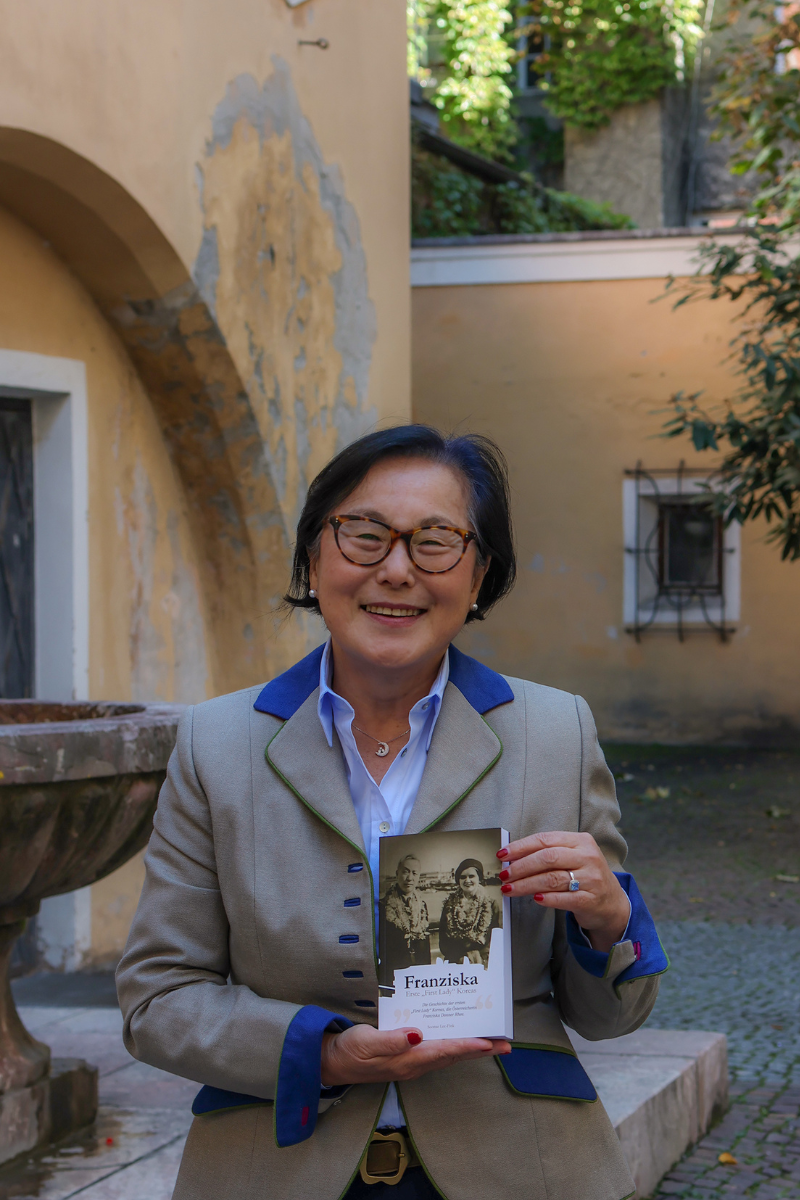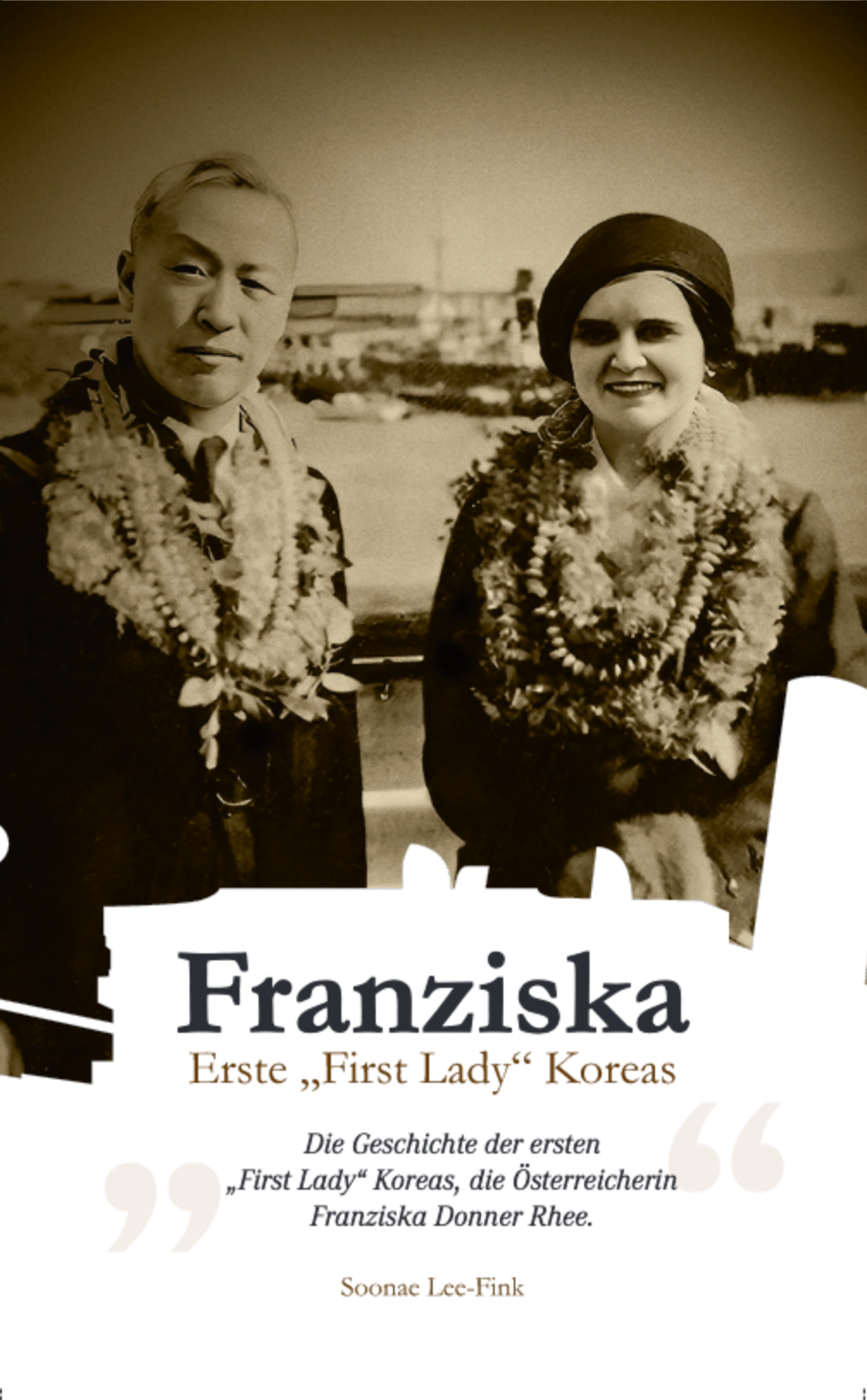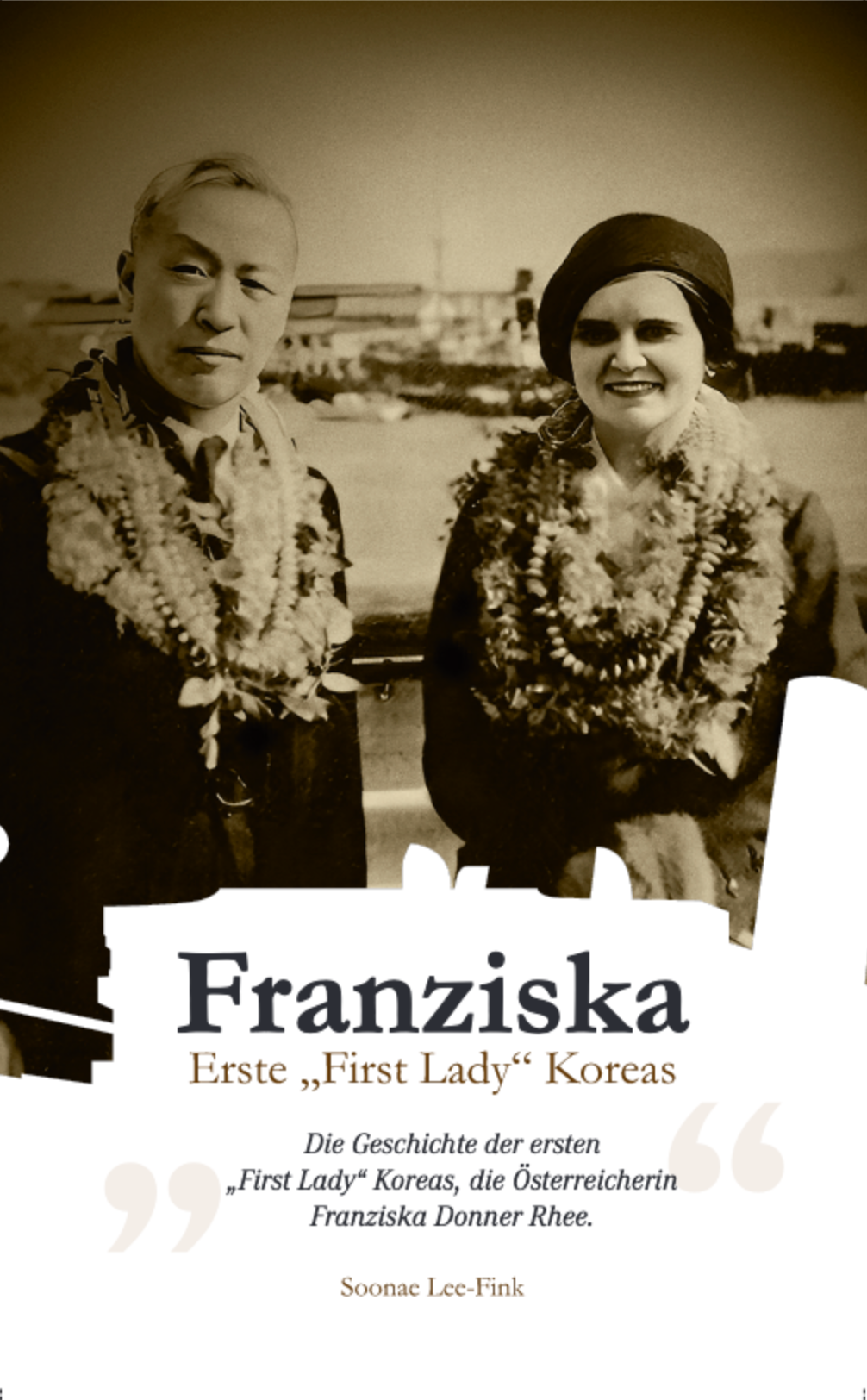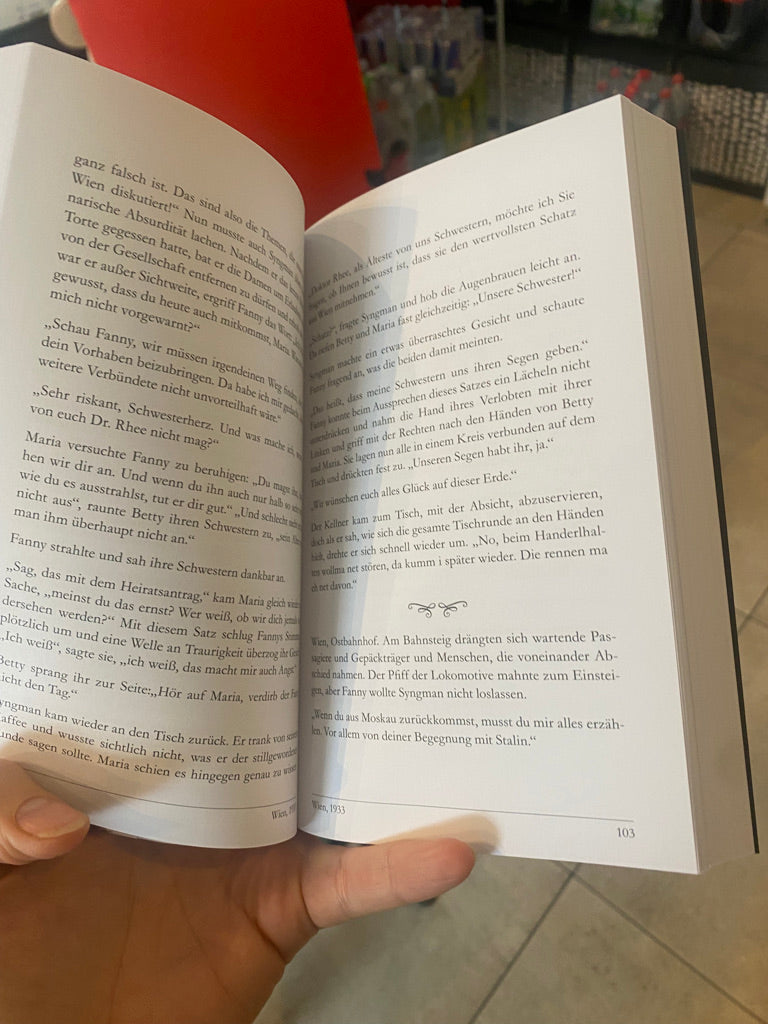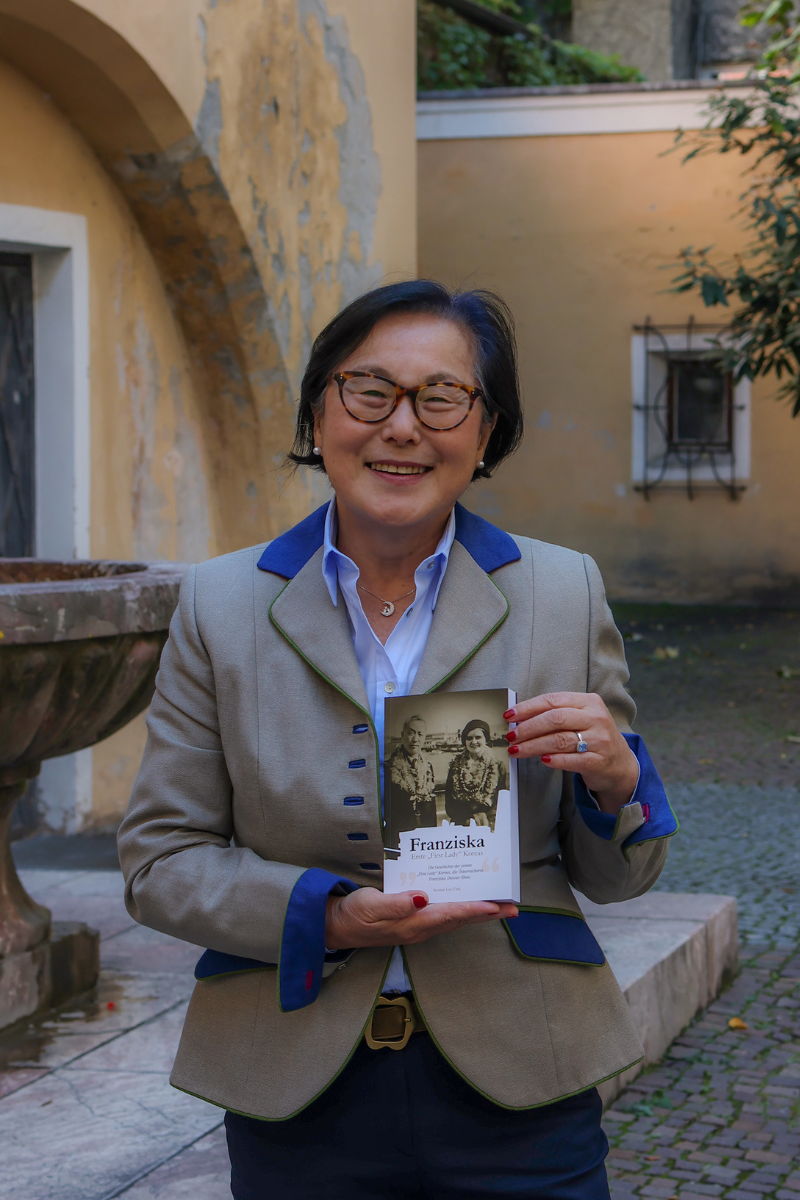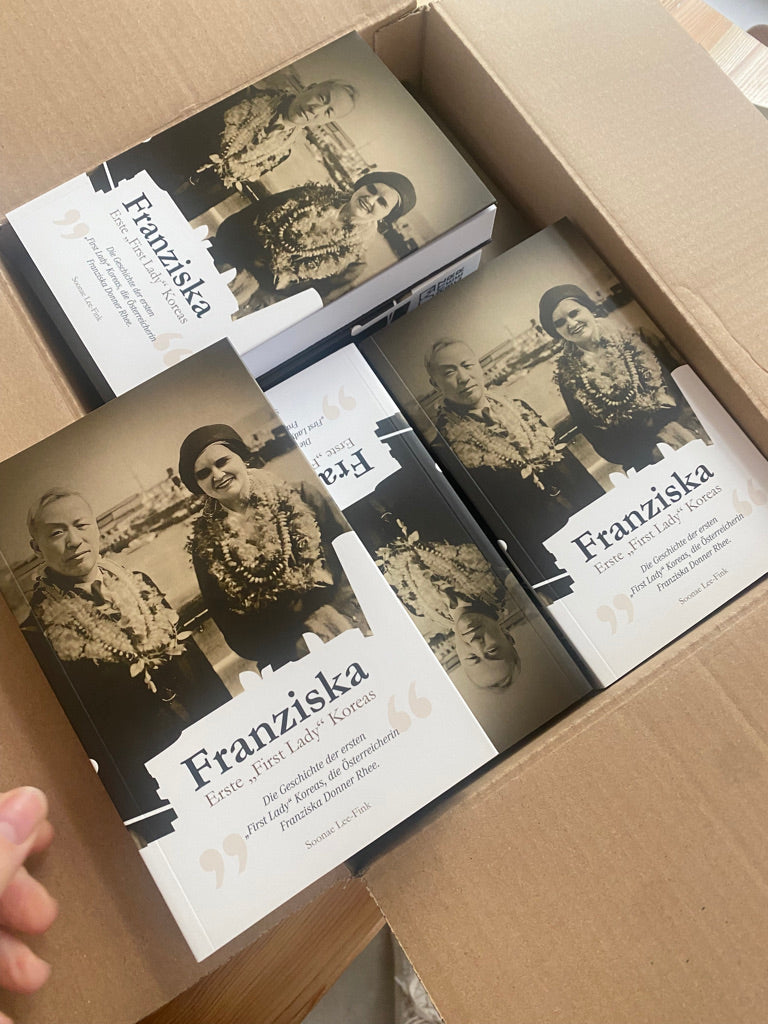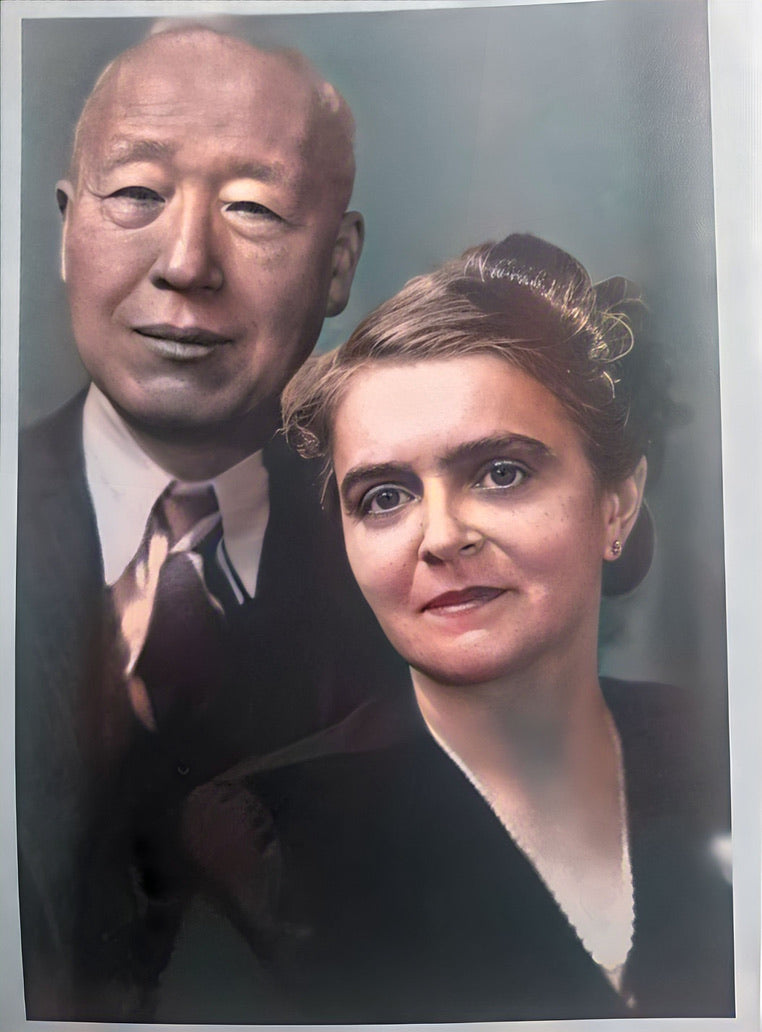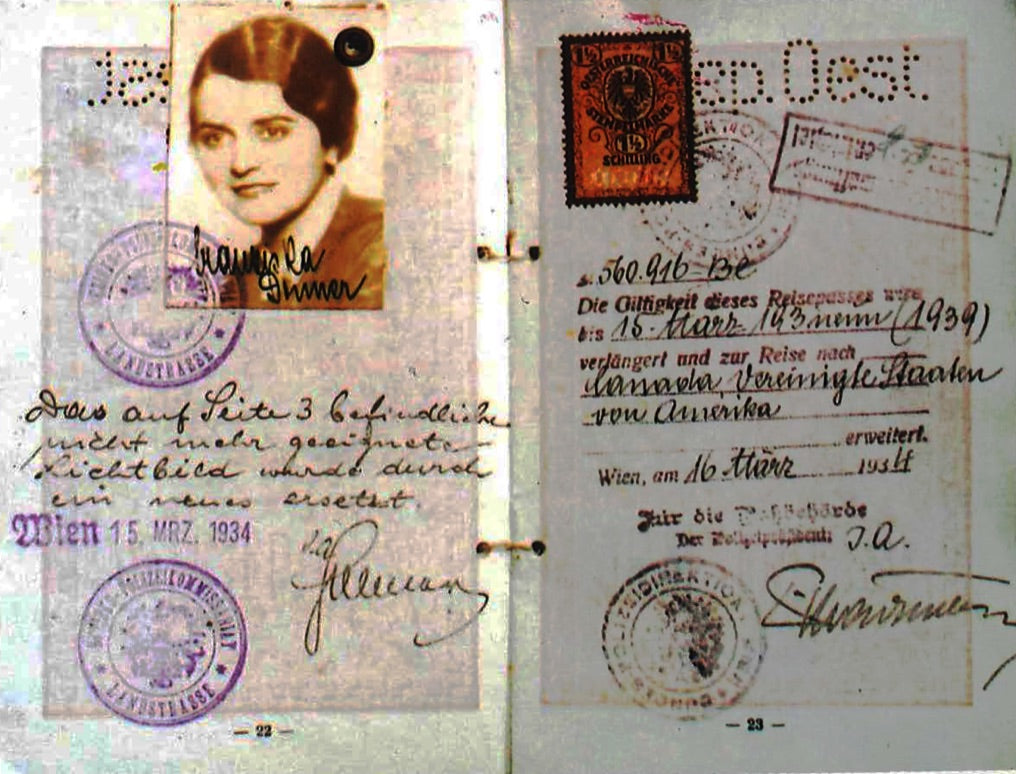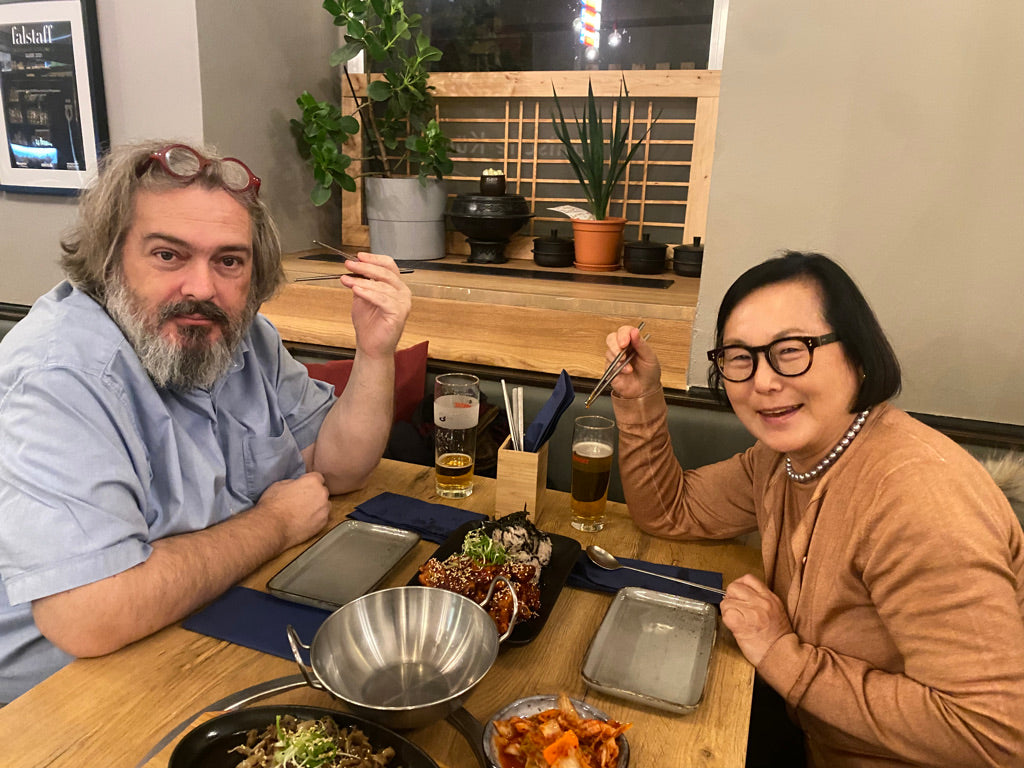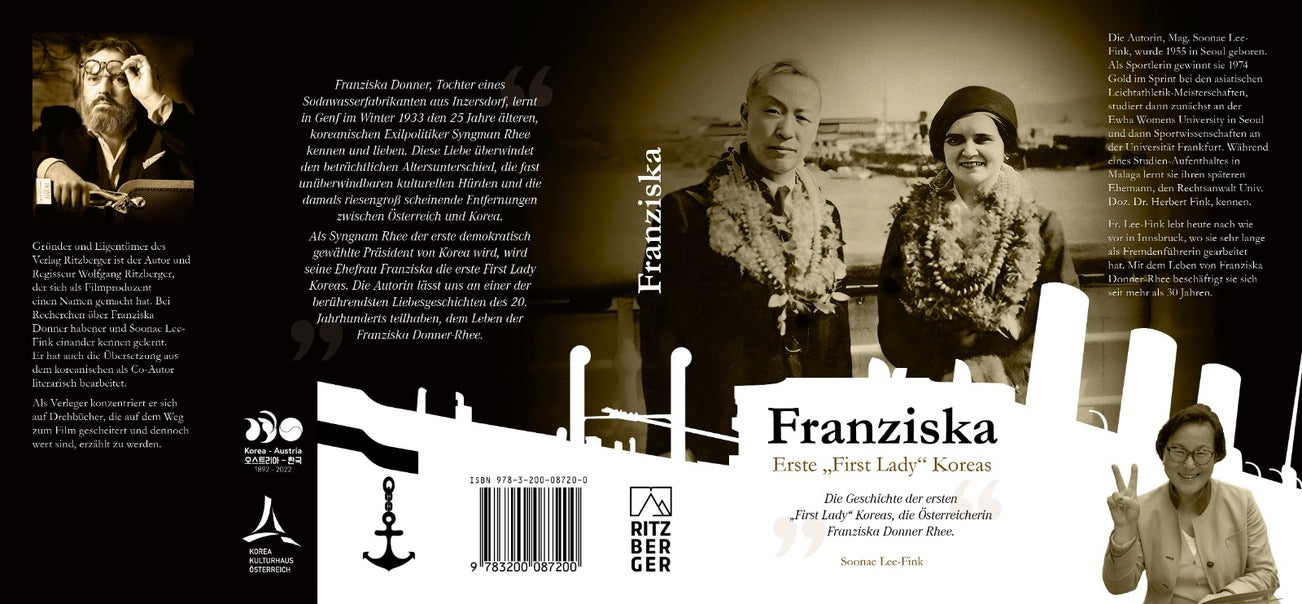The love for my husband, whom I met in Malaga, once led me to Austria, where I still live today after the death of my husband. Franziska Donner's love for her husband, whom she met in Geneva, also took her abroad, in her case to Korea. There she died at the age of 92 surrounded by her new Korean family, almost 30 years after the death of her husband.
It always seemed to me to be a coincidence of fate that the story of an Austrian woman living in Korea should become an affair of the heart for a Korean woman living in Austria. The life of Franziska Donner is the touching story of a great love between two people who came from very different cultures and yet, despite all difficulties, loved each other dearly.
The fact that Franziska would become Korea's first First Lady as Francesca Donner-Rhee alongside her husband Syngman Rhee was not something she was born with. When they met in Geneva in the 1930s, Rhee's election as Korea's first president seemed unlikely, even after the departure of Japanese troops. Still, for decades, Syngman Rhee had an unshakable belief that his native Korea would one day be free again.
The history of Korea and the sometimes difficult to understand politics of different parties and interest groups should not be the subject of this book. Almost 30 years after her death and half a century after Syngman Rhee died in exile at her side, Franziska Donner's life and love for her husband continues to inspire me. This book is about her.
She literally gave up everything to follow her love and gave up a secure existence to be with her husband. As First Lady, Franziska influenced the strict etiquette of Korean society with her own style, which among other things meant that Rhee was often ridiculed by his opponents because he obviously listened to his wife. For Korea in the 1940s and 1950s, it was almost a revolution. Franziska's only concern was her husband, whom she wanted to accompany safely through life, which she did with dedication until his death in exile.
After that she was looking for a new life for a few years, spent a short time in Austria, but ultimately only found a home in Korea with her Korean family, where she spent the last two decades of her life as a Korean. Together with their adopted son and his wife, they tried to cherish the memory of Syngman Rhee, which was not always easy for them. Syngman Rhee is rarely given pride of place in Korean history. He was considered a dictator and his reign one marked by corruption, and I think he is wrong to be judged in this way. It is probably thanks to Rhee that a free, democratic South Korea exists today. It is thanks to his persistence that Korea was spared the fate of Vietnam. With his views, he very often sat symbolically between all stools, between the rival political currents in Korea and the geopolitical interests of other states.
In my book we get to know the private side of the politician Syngman Rhee, that of a loving man who, like Franziska, had to cross cultural borders in order to meet the love of his life. She set up a museum for him in her former home in Seoul and gained respect and recognition for her traditional and humble life as a widow from a Korean point of view.
It is my wish, on the one hand, to erect a small monument to this extraordinary woman with this book and thereby to help ensure that she is not forgotten, and on the other hand, by describing her story, to create the connection between my old and my new homeland, between Korea and Austria, to clarify.
My book is a novel based on the historical figure of Franziska Donner. The diaries she kept fell victim to water damage in her home in Seoul after her death and are irretrievably lost. Therefore, there are no documents or eyewitnesses regarding many periods of her life, which is why I have added some fictional details in the name of literary freedom. The dialogues, in the form in which I describe them in this book, also arise from my imagination of individual scenes from the life of Franziska Donner. During my research I had to discover that there are only a few documents about Franziska. Her Austrian family, whose members now live in Austria, the USA and Canada, were also not interested in a story about Franziska, and some even refused any contact. This is regrettable, among other things, because Franziska and her sister used to correspond extensively for years. This correspondence and the reason why the family stops all contact remain a mystery to me for the time being.
For these reasons, the book cannot be viewed as a biography, or what we now understand it to be, but as a personal telling of the story of a very strong woman alongside a very strong man and their love for one another. I wrote this story the way I write my diaries. The story of Francesca "Franziska" Donner-Rhee, the first First Lady of Korea.
Soonae Lee Fink, October 2022
PS: The book was published in Korea several years ago and has aroused great interest among the historically interested public. I did the long overdue translation into German shortly before the outbreak of the corona pandemic. In the meantime I had met the film producer and author Wolfgang Ritzberger, who wanted to write a screenplay about Franziska Donner. Together we decided to revise the translation from a literary point of view in order to be able to publish the book in German.
I am particularly pleased that we were able to win the Korea Kulturhaus Austria in Vienna as the publisher of this book and that it will be published with the support of the Ambassador of the Republic of Korea in October 2022 on the occasion of the 130th anniversary of the establishment of diplomatic relations between Korea and Austria could be presented.
The book is a contribution to the deepening of cultural contacts between the two countries and a memory of Franziska Donner, who added a very personal note to this relationship through her historical work and her life.
![]()

